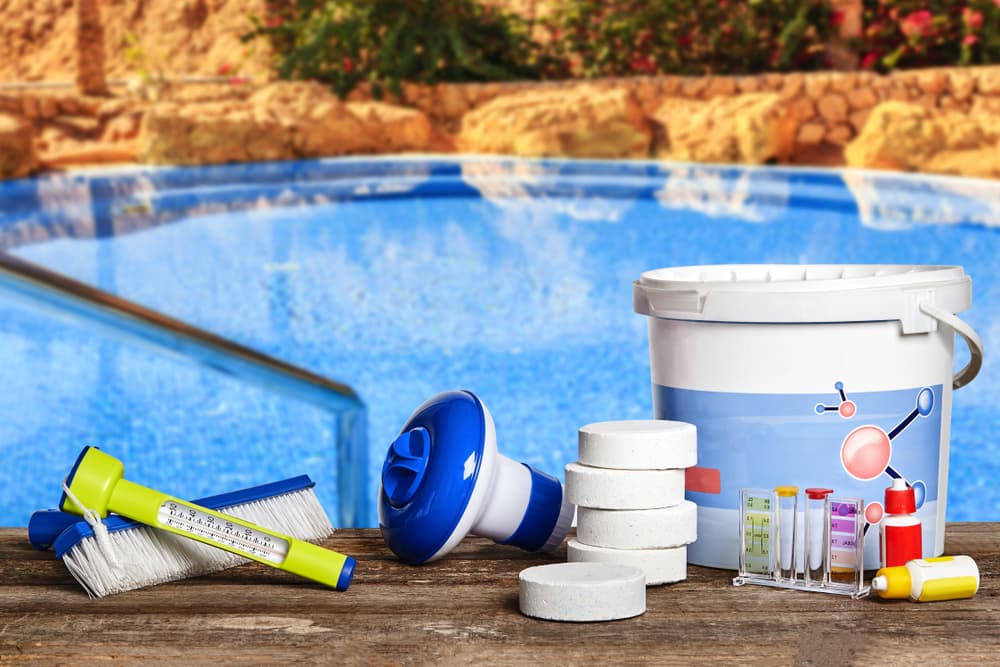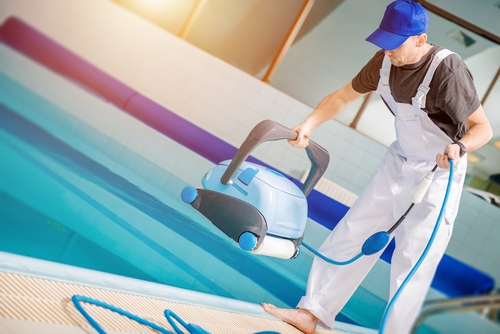
Having a world-class pool built in your backyard by experienced swimming pool contractors in San Diego is one of the best additions you can make to your home. A pool provides endless opportunities to have fun, socialize, and exercise. On top of all that, it also significantly boosts the value of your property.
However, like every other part of your house, your swimming pool has to be cleaned on a regular basis. This is necessary not only to ensure the pool looks good, but also to protect you and your loved ones from waterborne germs and parasites.
In the following article, we will give you some tried-and-true tips on how to clean your pool in a way that limits the spread of dangerous pathogens and gives the water a crystal clear look. Read on to learn more.
How do you sanitize a pool?
Broadly speaking, there are two main parts of pool cleaning. The first one includes taking debris out of the water, and cleaning the pool’s floor, walls, and surrounding area. The other is all about applying pool sanitizer to keep the water clean and germ-free.
You’ll need the following pool-cleaning equipment:

- Telescopic pole that extends to 16 feet is one of the best tools you can possibly get for pool cleaning. Simply attach a brush, skimmer net, vacuum head, or whichever other attachment you currently need to its end, and get to work.
- Pool vacuum cleaners come in both a manual and robotic variant. Whichever option you choose, it’s necessary to suck up the debris from the pool’s floor.
- Pool brush is used to scrub the floor and walls of a swimming pool. Just make sure you have the right brush. For instance, a brush with both nylon and stainless steel bristles is recommended for a concrete pool.
- Skimmer net is used to collect debris (twigs, leaves, hair ties, bugs, etc.) that has accumulated below or on the water’s surface.
What is the best sanitizing system for a swimming pool?
The second thing you need to do to ensure your pool looks nice and is safe to swim in, is to apply a quality pool sanitizer to the water. These chemicals are designed to remove harmful microbes and prevent algae infestations.
The 3 most popular pool sanitizers are:
- Chlorine is by far the most popular pool sanitization option. It kills or inactivates pathogens and keeps algae at bay. It comes in the form of tablets, powder, liquid, and gas.
- Saltwater chlorinators use a special generator to transform salt into chlorine. These chlorinators have the advantage of being extremely easy to use, but they can gradually damage the plaster finishes in concrete pools.
- Bromine is more expensive than chlorine, but some pool owners prefer it because it’s less irritating to the eyes and doesn’t smell as strongly as chlorine. Due to being more stable in warm water, it’s often used to sanitize spas and hot tubs. It usually comes in the form of granules or tablets.
Where can I find dependable swimming pool contractors in San Diego?
Taking your family to a public swimming pool such as the City Heights Swim Center is always a fun experience. Unfortunately, it also tends to be costly, inconvenient, and time consuming. On top of all that, there’s the possibility that one of the other swimmers has a dangerous transmittable disease such as the coronavirus.
So Cal Custom Pools & Spas is here to help. As an award-winning pool contractor in San Diego, we’re superbly equipped to provide your very own swimming pool or spa. Get in touch with us today.



 5-Star Pool Builder
5-Star Pool Builder
 5-Star Rating on Facebook
5-Star Rating on Facebook
 We are on Angie's List
We are on Angie's List




